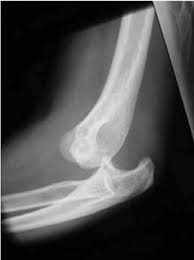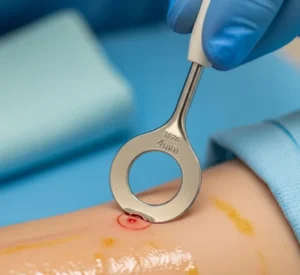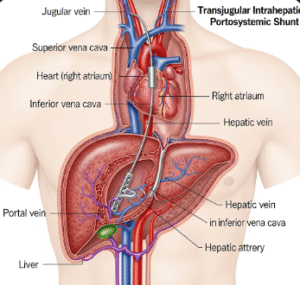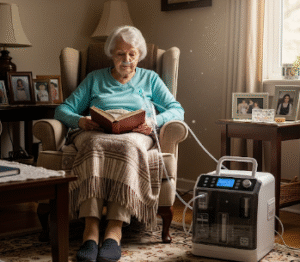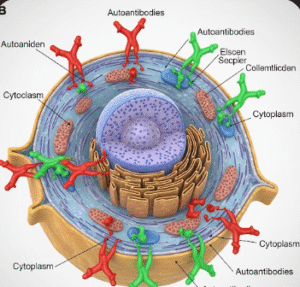Overview
The MS hug is a symptom associated with multiple sclerosis (MS), characterized by a tight, squeezing, or band-like sensation around the chest, ribs, or torso. Despite the term “hug,” it is not caused by an actual physical restraint. This sensation results from nerve dysfunction in the spinal cord, leading to abnormal signals interpreted as pressure, tightness, or pain.
In Korea, MS specialists and neurologists provide diagnostic evaluation and treatment for the MS hug, using medications, physical therapy, and supportive care to manage symptoms and improve quality of life. Early recognition is important, as this symptom may indicate active disease or nerve irritation.
Key Facts
➤ MS hug is a neuropathic symptom of multiple sclerosis.
➤ Feels like a tight, squeezing, or band-like pressure around the torso.
➤ Can last seconds to hours, sometimes even days.
➤ Often worsens with stress, fatigue, heat, or physical activity.
➤ In Korea, MS treatment centers offer multimodal management for this symptom.
What is the MS Hug?
The MS hug occurs due to spasticity or irritation of nerves in the spinal cord, particularly those that innervate the intercostal muscles between the ribs. The brain interprets these abnormal signals as pressure, squeezing, or burning, creating the sensation of being hugged tightly around the chest or torso.
It is classified as a neuropathic pain symptom, not a cardiac or pulmonary issue, although it can feel alarming to patients.
Symptoms Related to the MS Hug
The main features include:
➔ Band-like tightness around the chest, ribs, or abdomen.
➔ Burning, stinging, or tingling sensations along the torso.
➔ Pain intensity can range from mild discomfort to severe pain.
➔ Symptoms may come and go, sometimes triggered by temperature changes or fatigue.
➔ May be accompanied by other MS symptoms such as numbness, weakness, or spasticity.
Causes / Possible Causes
The MS hug arises from nerve damage caused by demyelination in multiple sclerosis:
Neurological Causes
➤ Damage to myelin sheaths in spinal cord nerves.
➤ Dysfunction of intercostal sensory nerves, causing abnormal signals.
➤ Hyperexcitability of neurons in affected areas.
Triggers and Contributing Factors
➤ Physical exertion or fatigue.
➤ Emotional stress or anxiety.
➤ Heat exposure (Uhthoff’s phenomenon).
➤ Fluctuations in MS disease activity.
Other Considerations
➤ MS hug may sometimes be misinterpreted as heart or lung problems; medical evaluation is important to rule out other causes.
Risk Factors
➤ Diagnosis of multiple sclerosis, particularly spinal cord involvement.
➤ History of MS relapses or nerve lesions.
➤ Women are slightly more affected, consistent with MS prevalence.
➤ High levels of stress or physical exertion can exacerbate symptoms.
Complications
While the MS hug is not life-threatening, it can lead to:
➤ Severe discomfort or pain, affecting daily functioning.
➤ Anxiety or panic attacks due to misinterpretation as cardiac issues.
➤ Fatigue from persistent pain or nerve irritation.
➤ Reduced mobility if associated with other MS-related symptoms.
When Should I See My Doctor?
Seek medical evaluation if:
➤ The sensation is sudden, severe, or persistent.
➤ Associated with chest pain, shortness of breath, or heart palpitations.
➤ Symptoms are increasing in frequency or intensity.
➤ There is uncertainty about whether the sensation is related to MS or another condition.
Care and Treatment
Management focuses on symptom relief and addressing underlying MS activity:
Medical Management
➤ Neuropathic pain medications – gabapentin, pregabalin, or carbamazepine.
➤ Muscle relaxants to reduce intercostal spasticity.
➤ Corticosteroids during MS flare-ups to reduce inflammation.
Lifestyle and Home Care
➤ Apply heat or cold packs to relieve discomfort.
➤ Gentle stretching or light exercise to improve circulation.
➤ Relaxation techniques such as deep breathing, meditation, or yoga.
➤ Avoid triggers like overheating, fatigue, or stress.
Psychological Support
➤ Counseling for anxiety or panic related to symptoms.
➤ Support groups for individuals with MS to share coping strategies.
Treatment Options in Korea
Korea provides comprehensive MS care through neurologic hospitals, rehabilitation centers, and integrative clinics:
Diagnostic Services
➤ MRI to detect spinal cord lesions.
➤ Neurological evaluation for sensory, motor, and reflex testing.
➤ Pain assessment and tracking to tailor management plans.
Therapies and Support
➤ Neuropathic pain management with specialist-guided medication.
➤ Physical and occupational therapy to improve mobility and comfort.
➤ Patient education on symptom management and MS progression.
Advanced Care
➤ Access to clinical trials or experimental therapies for MS.
➤ Multidisciplinary care including neurology, rehabilitation, and mental health specialists.
➤ Integrative programs focusing on stress reduction, exercise, and diet to minimize symptom severity.



